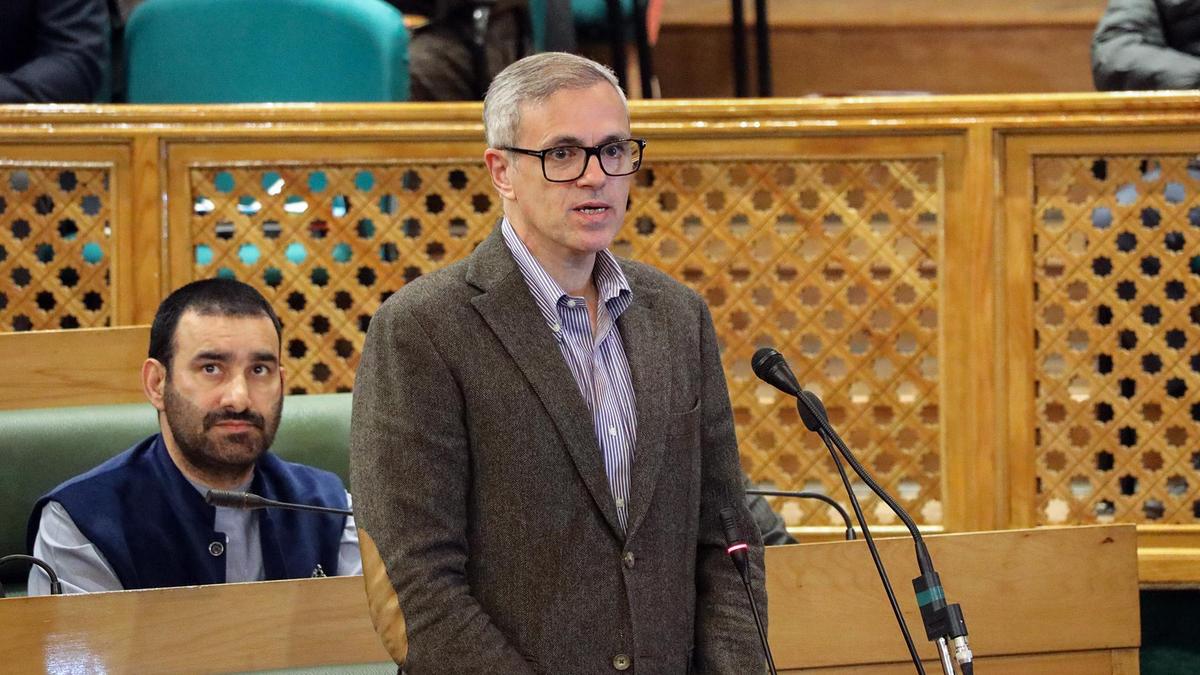On October 27, 2025, political tensions escalated between two prominent leaders of the National Conference (NC) party in Jammu and Kashmir, ahead of the crucial Budgam assembly by-elections scheduled for November 11. The conflict unfolded publicly between Jammu and Kashmir Chief Minister Omar Abdullah and NC Member of Parliament (MP) Aga Syed Ruhullah, highlighting growing rifts within the party as it approaches a significant electoral test in Budgam, a key constituency and the hometown of MP Ruhullah.
The immediate trigger for the fresh exchange of sharp words was a televised debate in which another NC MP, Mian Altaf, reportedly advised Chief Minister Omar Abdullah to exercise caution and patience when discussing sensitive issues such as electricity metering and reservation policies. Omar Abdullah later clarified that Mian Altaf had not made any critical remarks as reported by the media but had merely suggested that the Chief Minister speak carefully, advice Omar accepted respectfully, likening it to similar counsel he receives from his father.
However, the Chief Minister’s reaction turned notably defensive when his reference to MP Aga Syed Ruhullah’s past criticisms of his leadership came up during the conversation. Omar Abdullah vehemently rejected any comparison between Mian Altaf and Ruhullah, stating, “The difference between the two is like the ground and sky,” and urged others not to speak about MP Ruhullah in this context. This statement underscored the deepening discord between the two party stalwarts.
In response, MP Aga Syed Ruhullah expressed regret that the dialogue had devolved into personal attacks. He emphasized that the real issue transcended individual personalities and concerned the broader existential challenges facing Kashmir. Ruhullah questioned whether the government still remembered the plight of Kashmiri youth imprisoned for years and whether promises made to restore dignity and justice to Kashmiris were being fulfilled. He asserted that their struggle was never meant to glorify autocratic rulers but to genuinely serve the people of Kashmir.
This public clash is not a new phenomenon. Since the formation of the Jammu and Kashmir government in 2024, Omar Abdullah and Aga Syed Ruhullah have frequently found themselves at odds. Their differences first became apparent when MP Ruhullah participated in a protest over reservation policies at the Chief Minister’s residence in Srinagar last year. Since that incident, the two leaders have been openly critical of each other, signaling a fracture within the National Conference’s ranks.
Adding to the political drama, MP Ruhullah has distanced himself from the party’s campaign efforts for the upcoming Budgam by-election. As an influential Shia cleric deeply rooted in Budgam, Ruhullah commands substantial popularity among local voters. His decision to withdraw active support for the party’s campaign has raised eyebrows, especially given the importance of the seat and the party’s reliance on his influence to secure victory. Ruhullah has voiced his dissatisfaction with the performance of Omar Abdullah’s government, implying that the administration has fallen short of the expectations of its constituents.
In a further development, NC Member of the Legislative Assembly (MLA) Abdul Majeed Larmi publicly called for MP Ruhullah’s resignation, reflecting the intensifying internal strife within the party. Meanwhile, supporters of MP Ruhullah expressed their solidarity by organizing street demonstrations in Bandipora, signaling a grassroots backlash to the Chief Minister’s remarks and highlighting the polarized sentiments within the party’s base.
The unfolding conflict between Omar Abdullah and Aga Syed Ruhullah comes at a sensitive political moment for Jammu and Kashmir. The Budgam by-election is seen as a litmus test for the National Conference’s hold over the region and its ability to maintain unity amid rising internal dissent. The rivalry between two of the party’s prominent leaders threatens to undermine the party’s electoral prospects and complicate governance in the union territory.
Both leaders represent distinct constituencies and political visions within the National Conference. Omar Abdullah, a seasoned politician and the sitting Chief Minister, embodies the party’s mainstream leadership. In contrast, Aga Syed Ruhullah, with his religious stature and grassroots appeal, wields considerable influence among Shia voters in Budgam and beyond. Their personal and political differences reflect broader tensions within the party over strategy, governance, and representation.
The public nature of their dispute, marked by sharp exchanges and mutual accusations, has drawn considerable media attention and raised questions about the National Conference’s cohesion going into the by-elections. With the stakes high, party insiders worry that the ongoing feud might erode voter confidence and provide an opening for rival political forces in

